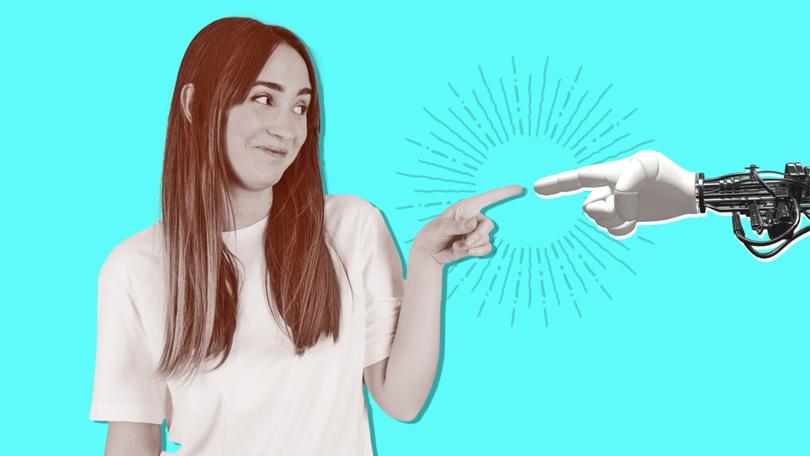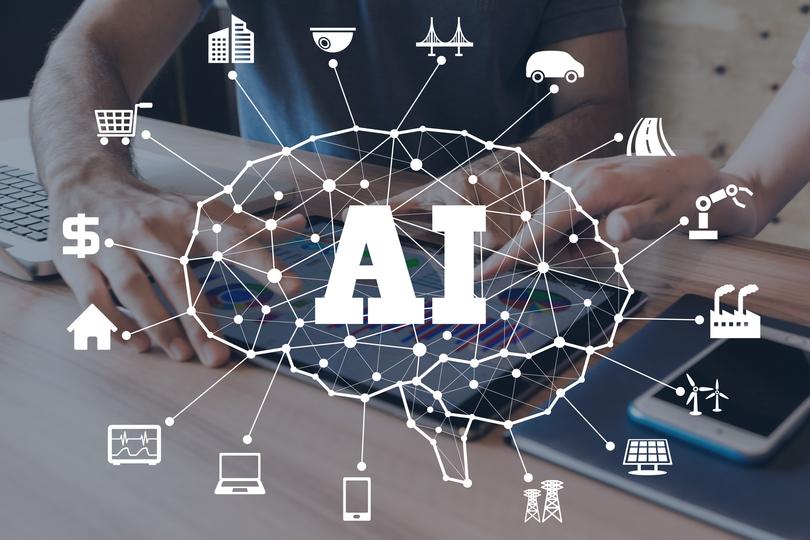GEMMA ACTON: There is no escape from AI. So we may as well get on board or risk being left behind
The inescapable truth is that no one is going to escape AI. The happier news is that there’s a good chance it’ll improve your life very soon in ways we still can’t even imagine today.

This one is for the technophobes — or at least those of you who had been hoping to ignore the advent of artificial intelligence and the uncomfortable reality that it may shake up your life.
The inescapable truth is that no one is going to escape it. The happier news is that there’s a good chance it’ll improve your life very soon in ways we still can’t even imagine today, such is the pace at which it’s developing.
I emcee many conferences across a variety of industries. As recently as two years ago, not a single conference I spoke at had AI as a dominant theme. This year, I haven’t done a single event where AI hasn’t overpowered the entire conversation.
Sign up to The Nightly's newsletters.
Get the first look at the digital newspaper, curated daily stories and breaking headlines delivered to your inbox.
By continuing you agree to our Terms and Privacy Policy.One comforting observation is that even those at the epicentre of the AI revolution are still at the beginning of their journeys. Yes, that includes the world’s biggest technology firms with a panellist from one of the most important global AI companies telling me last week, “We’re all at 2am”.
So if you think you’re late to the party, don’t worry, everyone is still figuring out what it means for them and how to harness its potential. And what potential there is.
Reams of data are collected every day but historically most businesses (tech giants aside) have been rather lazy about utilising what it can tell them about their employees and customers.
We’re going to see a very earnest effort from business to better organise the gargantuan amounts of data that we as consumers are throwing off every single second.
We’re not just talking about something as obvious as keeping track of what you’re searching for on the internet but even things like how long you spend in the vegetable section in the supermarket and what that suggests about you as a consumer.
With the help of AI, the personalisation of services and products is set to make today’s attempts at personalisation look embarrassingly generic. This sounds invasive but it does open up compelling opportunities for us as consumers to have much more help in critical areas that could make a true difference to our quality of life.
Areas include but are far from limited to how we manage our finances, the insights we can get into our health before an issue becomes debilitating and personal safety, be it in workplaces, driving cars or within our own homes. An e-nose that can tell management when public toilets need to be cleaned? It already exists.

Lest you think I’ve drunk the Kool-Aid and am heading down the path of those heralding the awakening of a “tech-utopia”, I do see major problems ahead. Hallucinations are a tremendous concern with Generative AI. To test its accuracy, I recently asked ChatGPT to tell me everything it knew about “Gemma Acton”.
While it did bring up a lot of facts, there was a terrifying amount of garbage also baked in. No, I’m not married to an English footballer.
There is a Gemma Acton who is married to the footballer Gary Cahill so I can see where it was coming from but the fact that it didn’t have the critical thinking ability to realise it was conflating two entirely different people with the same name (an error a human with any common sense could have easily avoided) is worrisome and will no doubt lead to all sorts of problems.
While GenAI systems are improving every day, the experts say hallucinations will persist. Other very real issues include disinformation, privacy infringements, bias and immense potential for workforce disruption.
This signals the need for us to keep on our toes and question everything we see and hear. As Kate Carruthers, the chief data and insights officer for the University of New South Wales says, there is soon going to be a “tsunami of rubbish” out there.
Long gone are the days when we could safely believe what our eyes and ears told us.
After being caught in a deep slumber while social media rode roughshod over the world in recent decades, global governments and regulators are now keen to show they’re wide awake. Early frameworks, principles and ongoing dialogues on a global scale are already in place to ensure ethics don’t get completely forgotten this time around.
In many ways, AI has the power to be a great democratiser. For start-ups that couldn’t afford to hire lots of staff, there are AI tools that can do some work for them at a fraction of the cost. For those of us who can’t afford human assistants to help manage our daily lives, we can already access competent digital assistants.
Here’s how I’m preparing myself for what’s coming. I’m swotting up on what’s out there that’s free or affordable that can help me today and make sure I’m following the right sources so when new tools arrive (which is happening daily), I don’t miss them.
I’ve also dragged my university philosophy books down off a high shelf as the first move in a bid to strengthen my critical thinking skills.
I refuse to be someone who is afraid in the face of this transformative new technology. I’m determined to ensure it works for me, by making my life simpler, my work more interesting and my money go further.

